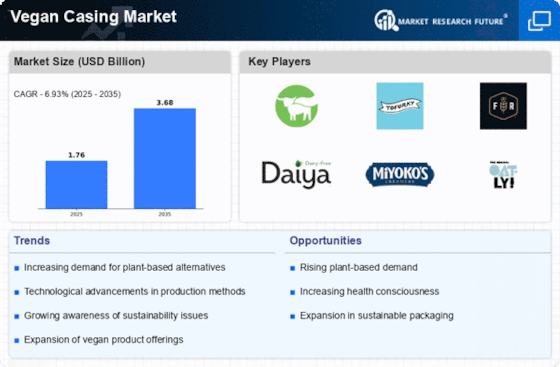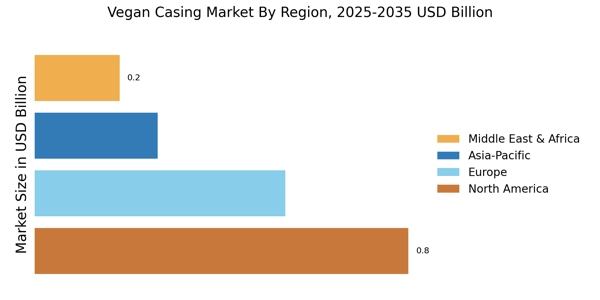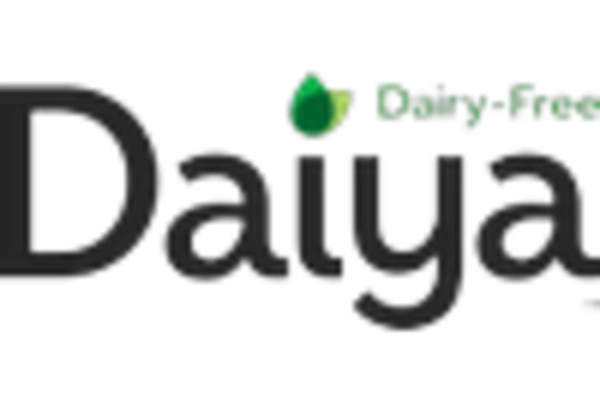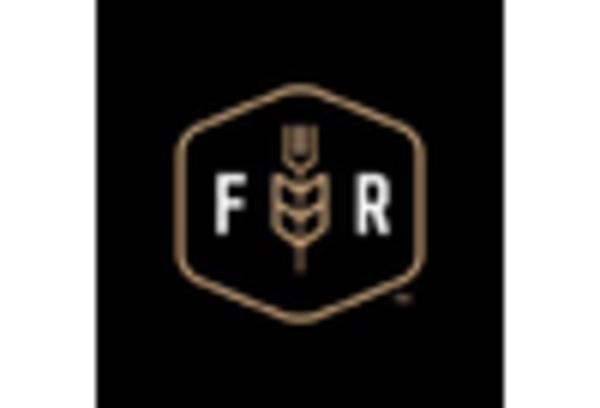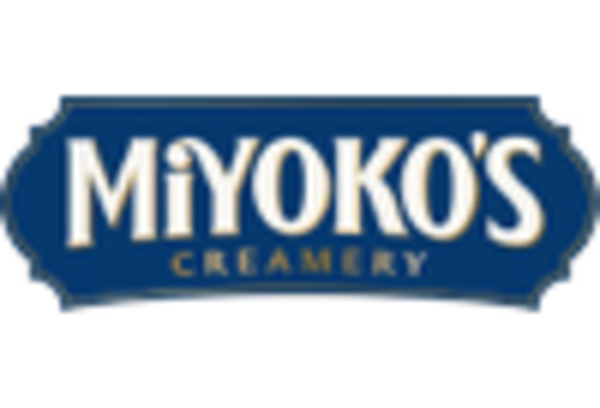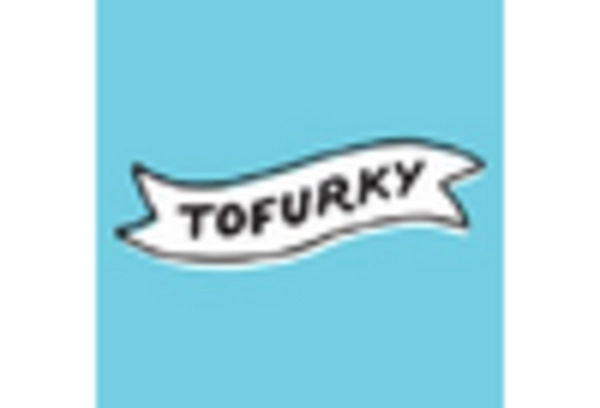Changing Dietary Preferences
The shift in dietary preferences towards plant-based diets is a significant driver for the Vegan Casing Market. As more individuals adopt vegetarian and vegan lifestyles, the demand for plant-based alternatives, including vegan casings, is on the rise. Market data indicates that the number of people identifying as vegan has increased substantially, with estimates suggesting a growth rate of over 20% in recent years. This trend is not limited to specific demographics; it spans various age groups and regions, indicating a widespread acceptance of plant-based diets. The Vegan Casing Market stands to gain from this shift, as consumers actively seek out products that align with their dietary choices. The increasing availability of vegan options in restaurants and retail outlets further supports this trend, making it easier for consumers to incorporate vegan casings into their meals.
Growing Health Consciousness
The increasing awareness of health and wellness among consumers appears to be a pivotal driver for the Vegan Casing Market. As individuals become more informed about the health implications of their dietary choices, there is a noticeable shift towards plant-based alternatives. This trend is reflected in market data, indicating that the plant-based food sector is projected to reach a valuation of approximately 74 billion dollars by 2027. The Vegan Casing Market benefits from this shift, as consumers seek healthier options that align with their lifestyle choices. Furthermore, the emphasis on reducing saturated fat and cholesterol intake has led to a surge in demand for vegan casings, which are perceived as healthier substitutes for traditional animal-based casings. This growing health consciousness is likely to continue influencing purchasing decisions in the Vegan Casing Market.
Innovation in Food Technology
Technological advancements in food production are playing a crucial role in shaping the Vegan Casing Market. Innovations in food technology, such as improved extraction methods and fermentation processes, have led to the development of high-quality vegan casings that closely mimic the texture and flavor of traditional casings. This evolution is supported by market data indicating that the plant-based food technology sector is expected to witness substantial growth, with investments in research and development increasing. As manufacturers continue to innovate, the Vegan Casing Market is likely to benefit from enhanced product offerings that appeal to a broader consumer base. The ability to produce vegan casings that meet the sensory expectations of consumers is essential for driving adoption and expanding market reach. Thus, ongoing innovation is a key driver for the Vegan Casing Market.
Sustainability and Environmental Concerns
Sustainability has emerged as a critical factor influencing consumer behavior, particularly in the Vegan Casing Market. As environmental issues gain prominence, consumers are increasingly seeking products that minimize ecological impact. The Vegan Casing Market is well-positioned to capitalize on this trend, as plant-based casings typically require fewer resources and generate lower greenhouse gas emissions compared to their animal-based counterparts. Market Research Future suggests that the demand for sustainable food options is expected to grow, with a significant portion of consumers willing to pay a premium for environmentally friendly products. This shift towards sustainability not only reflects changing consumer preferences but also aligns with broader global initiatives aimed at reducing carbon footprints. Consequently, the Vegan Casing Market is likely to experience growth as it meets the rising demand for sustainable food solutions.
Regulatory Support for Plant-Based Products
Regulatory frameworks that support the development and marketing of plant-based products are emerging as a vital driver for the Vegan Casing Market. Governments and regulatory bodies are increasingly recognizing the importance of sustainable food systems and are implementing policies that encourage the production and consumption of plant-based alternatives. This support is reflected in various initiatives aimed at promoting plant-based diets, which can lead to reduced environmental impact and improved public health outcomes. Market data suggests that regions with favorable regulations for plant-based products are witnessing accelerated growth in the Vegan Casing Market. As these policies continue to evolve, they are likely to create a more conducive environment for innovation and investment in vegan casings, further propelling market expansion.


